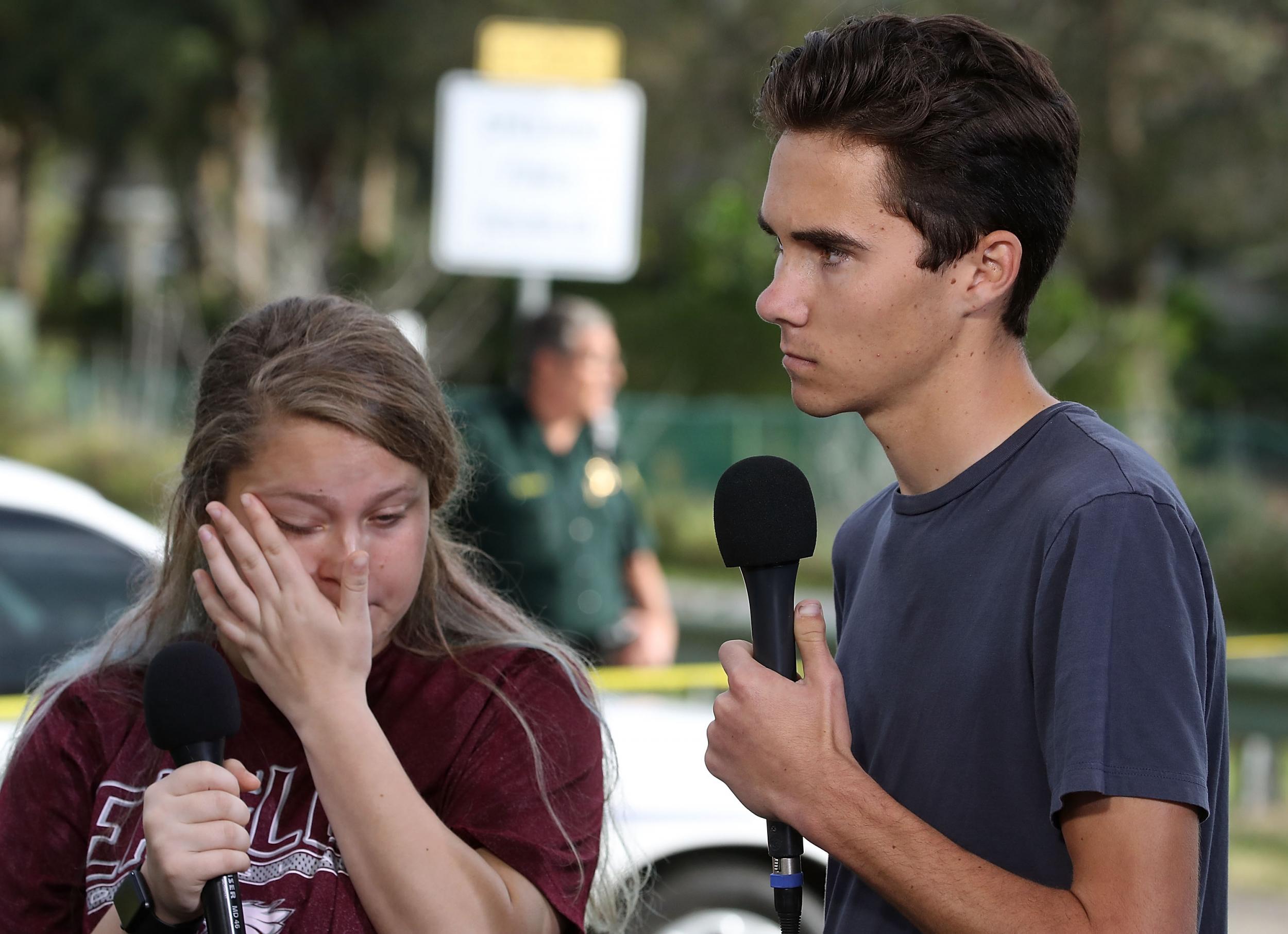Florida school shooting: Conspiracy theory about victims heads to the top of YouTube
A student has been forced to deny being a 'crisis actor' after Donald Trump's son 'liked' a conspiracy theory about the victims of the killing

Your support helps us to tell the story
From reproductive rights to climate change to Big Tech, The Independent is on the ground when the story is developing. Whether it's investigating the financials of Elon Musk's pro-Trump PAC or producing our latest documentary, 'The A Word', which shines a light on the American women fighting for reproductive rights, we know how important it is to parse out the facts from the messaging.
At such a critical moment in US history, we need reporters on the ground. Your donation allows us to keep sending journalists to speak to both sides of the story.
The Independent is trusted by Americans across the entire political spectrum. And unlike many other quality news outlets, we choose not to lock Americans out of our reporting and analysis with paywalls. We believe quality journalism should be available to everyone, paid for by those who can afford it.
Your support makes all the difference.One of YouTube’s most popular videos is pedalling a conspiracy theory about the deadly Parkland school shooting.
The post – currently at the top of YouTube’s “Popular Right Now” playlist – shows David Hogg, one of the Marjory Stoneman Douglas High School students who has led the push for gun reform in the wake of the shooting at the school. It suggests that he is an “actor”.
Mr Hogg became well-known in the wake of the shooting when it emerged he had interviewed class mates while the shooting was taking place, and gave an interview where he looked into the camera and called for politicians to bring change.
The video is part of a conspiracy theory that claims Mr Hogg and the other people representing themselves as students are actually paid actors, being used by gun control advocates to push for their policies. While the video simply re-posts an old video of Mr Hogg, its description says “DAVID HOGG THE ACTOR”, making clear why it is being uploaded and shared.
The video is notable because it includes another time that Mr Hogg was part of a news story. It is a re-post of a news report about the fact that Mr Hogg had filmed a confrontation between a lifeguard and a surfer – and that the video he had uploaded had since gone viral.
That news story is entirely unconnected to the events at the Florida high school that left 17 people dead and many more injured. But conspiracy theorists are suggesting that it shows Mr Hogg is an actor who has been used to comment on news stories before.
It is just one part of that vast conspiracy, and other videos on the site include videos of Mr Hogg supposedly forgetting his lines while talking to camera and outright allegations that he is a “crisis actor”, and wasn’t actually an eyewitness to the shooting at all.
Many of those videos are recommended alongside the video about the lifeguard, meaning that anyone who sees it – potentially without context, after having clicked into YouTube’s most popular section – will be encouraged to watch more of the false conspiracy theory videos.
The YouTube playlist doesn't mean that it has received the most views of any video on the site – only that it is "trending", indicating that a lot of people are watching it and it is growing quickly.
But searching for Mr Hogg's name on the site shows a range of similar videos, many of them claiming that he is an actor and others offering supposed proof of that claim.
Mr Hogg has been forced to defend himself on CNN, after a tweet about the conspiracy theory was “liked” by Donald Trump Jr.
“I’m just so sorry that these people have lost their faith in America, because I know I certainly haven’t,” he told Anderson Cooper. He said it was “disturbing” to hear that he was being accused of being an actor, and said that he found it “unbelievable to me that people are saying this”.
It’s far from the first time that tech companies’ algorithms have accidentally surfaced fake conspiracy theories in the wake of traumatic and terrible events. Google, YouTube, Twitter and others have been criticised for giving play to websites that promote false stories around major events, apparently attempting to seize on the interest in a global news story either to spread misinformation.
Join our commenting forum
Join thought-provoking conversations, follow other Independent readers and see their replies
Comments